It is illegal for a business to engage in false and misleading conduct when advertising goods and services.
Conduct includes:
- advertisements
- promotions
- quotations
- statements
- any representations made by a person.
Businesses could be in breach of the Australian Consumer Law if they create an overall misleading impression about:
- price
- value
- quality of goods or services.
A business can mislead consumers without intending to. It is the actions and statements of a business, not its intentions, that matter.
Types of misleading conduct
Silence
A business can break the law by failing to give you relevant information or facts.
Silence can be false and misleading when:
- one person fails to alert another to facts known only to them, and the facts are relevant to a decision
- a person is not given important information
- a change in circumstances means information already provided is incorrect.
Whether silence is false or misleading will depend on the circumstances of each case.
Disclaimers and small print
A business must give consumers all the important facts or information about goods and services. They cannot rely on disclaimers buried in small print.
You cannot ignore disclaimers that are prominently displayed. Any disclaimers must:
- be prominent and visible
- not be obscured by images, graphics or text
- not undermine or contradict the main offer.
Predictions and opinions
A statement about the future that does not turn out to be true is not necessarily misleading or deceptive.
However promises, opinions and predictions can be false and misleading if the person making the statement:
- knows it is untrue or incorrect
- does not care whether it was true or not
- has no reasonable grounds for making it.
Pricing mistakes
If a business advertises an incorrect price by mistake, they are not obliged to sell the product at that price. However, they must withdraw the product from sale until the price is corrected.
If you order a product at an incorrect price, the business must inform you of their mistake before processing the order and give you the choice to:
- continue with their order at the correct price or
- cancel the order or
- the business can choose to honour the discounted price as a sign of good will.
If a price seems unusually low, you can prevent any issues by asking the business if the price displayed is correct.
Unreasonable statements or actions
Unreasonable statements, also known as 'Unconscionable conduct', are a statement or action that is completely exaggerated and is more than just unfair.
Conduct of this type includes situations such as:
- not allowing enough time to read an agreement, ask questions or get advice
- using a friend or relative to influence the customer's decision
- forcing a person to sign a blank or one-sided contract
- not disclosing key information
- being forceful or not taking 'no' for an answer.
Business must not take advantage of:
- consumers who do not speak English or have English as a second language
- consumers with low literacy levels
- consumers with a disability
- low-income earners.
Conduct which is not misleading
Exaggerated claims
Exaggerated claims also known as ‘Puffery’, are claims that no reasonable person could believe.
Businesses are allowed to advertise like this, but there is no legal distinction between puffery and false or misleading conduct. A Court will decide if a reasonable person would believe the statement.
Exceptions for information providers
Information providers include media organisations, such as:
- radio and television stations
- newspaper and magazine publishers (including online)
Information publishers will be liable for publishing an advertisement that is misleading or deceptive. However, they may not be responsible if they:
- are in the business of publishing or arranging for the publication of advertisements
- received the advertisement in the ordinary course of this business; and
- did not know, and had no reason to suspect, that the advertisement was misleading or deceptive.
Offensive advertising
Contact the Advertising Standards Bureau (ASB) if you think an advertisement is offensive.
This might be because it:
- discriminates against somebody’s race, nationality, sex, age, sexual preference, religion, disability or political beliefs
- shows strong violence
- uses strong or coarse language
- portrays sex, sexuality or nudity
- demonstrates poor health or safety
- may cause alarm or distress to children.
Unconscionable conduct
Generally, 'unconscionable conduct' is a statement or action so unreasonable it defies good conscience.
For conduct to be unconscionable, it needs to be more than merely unfair or unreasonable.
Examples of unconscionable conduct
Whether conduct is unconscionable will depend on the circumstances.
These are some examples of unconscionable conduct:
- not allowing sufficient time to read an agreement, ask questions or get advice
- using a friend or relative of the customer to influence the customer's decision
- pressuring a person to sign a blank or one-sided contract
- not disclosing key contractual terms
- using high pressure tactics, such as not taking 'no' for an answer.
Business must not take advantage of:
- consumers who do not speak English or have English as a second language
- consumers with learning, emotional or behavioural disabilities
- low-income earners (such as by making false statements about the full cost of a loan).
Related information
This page has been produced and published by the Consumer Building and Occupational Services Division of the Department of Justice. Although every care has been taken in production, no responsibility is accepted for the accuracy, completeness, or relevance to the user's purpose of the information. Those using it for whatever purpose are advised to verify it with the relevant government department, local government body or other source and to obtain any appropriate professional advice. The Crown, its officers, employees and agents do not accept liability however arising, including liability for negligence, for any loss resulting from the use of or reliance upon the information and/or reliance on its availability at any time.

